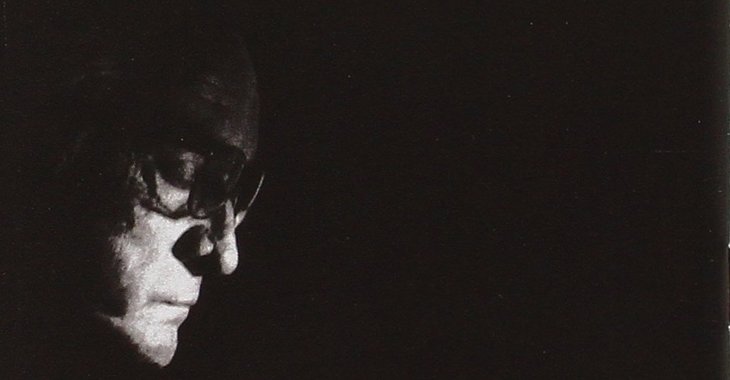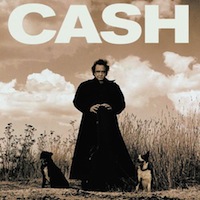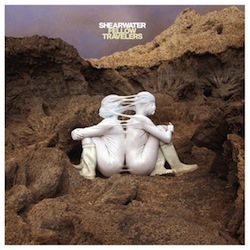10 Covers Albums: One Artist, Many Tributes

A few weeks ago we took our first serious look at great all-covers albums, focusing on those made by one artist paying homage to the work of another. One thing we noticed? There’s not that many of them. In fact, looking at the relationship between performers and their sources, the releases with one-to-one and many-to-many ratios seem to be the hardest to find. But start talking many-to-one or vice versa, and you’ll end up with a treasure trove of interesting music through which you can wade. Artists who go out of their way to perform a set of many other musicians’ works often do so with intent beyond it just being a cool thing to do. Between the Buried and Me curated artistic inspirations and longtime favorites on The Anatomy of…. Maybe there’s a theme, like Rosanne Cash’s The List using important songs suggested by her father Johnny. Maybe there’s a certain period of time to review, like each entry in Matthew Sweet and Susanna Hoffs’ Under the Covers series. Maybe there’s a specific genre to match or tweak, as The Dirtbombs did with Detroit techno on Party Store. For some of the covering artists, of course, these albums end up being little more than curiosities or career footnotes (See: Guns ‘n’ Roses, David Bowie). Others, however, maintain small cottage industries based on the format. (See: Metallica, Brad Mehldau.) Regardless of motive, only a few can truly be great at what they do. Here are our standout picks for multi-cover albums assembled by individual artists.
 Willie Nelson – Stardust
Willie Nelson – Stardust
(1978; Columbia)
Buy at iTunes
In the late ‘70s, Willie Nelson’s smooth and rebellious outlaw country had slowly garnered critical and commercial success, and for good reason. Nelson’s signature, slightly off-kilter delivery and no-compromises attitude were as inspiring as they were charming; he had established his career rebelling against the Nashville sound’s strict rules regarding pop sensibility. So 1978’s Stardust, a collection of pop, rock, country, and folk covers, came as quite a surprise. But, assisted heavily by producer/composer Booker T. Jones, Nelson pours his spirit into each classic he reinterprets with great success. From the titular “Stardust,” to the swinging “Don’t Get Around Much Anymore,” to the ever-timeless “Georgia On My Mind,” Willie romps through this delightful set without abandoning the careful approach found on all of his best records.- AK
 Johnny Cash – American Recordings (1994; American Recordings)
Johnny Cash – American Recordings (1994; American Recordings)
and American IV: The Man Comes Around (2002; American Recordings)
Buy at iTunes
When you think of producer and label executive Rick Rubin you think of musical beginnings. He evangelized for Beastie Boys at the start of their career and launched Red Hot Chili Peppers into the stratosphere, but we might be most thankful that he set Johnny Cash on the last productive path of his life. Cash had long griped about his albums feeling overproduced, and signed to Rubin’s nascent American Recordings imprint after miserable periods with Columbia and Mercury. Committed to keeping things simple, they cracked open America’s great songbooks of gospel, country, folk, and the stage; they revisited some of Cash’s own work; and, they reinterpreted classic and modern rock, metal and Top 40 schmaltz. The partnership would eventually turn out six LPs, plus a box set with four more discs of new performances and alternate takes. Of these it’s American IV: The Man Comes Around that everyone really knows, and yet doesn’t know. Recorded with big-name players after Cash’s health took its penultimate turn, released less than a year before his death, this is where we find his aching version of “Hurt” that eerily bookends the Nine Inch Nails original. Yet that’s just part of what is a preemptive and defiant eulogy that also contains measured takes on hits for Roberta Flack, Vera Lynn, The Beatles, The Eagles, even Trent Reznor’s synthpop brothers-in-arms Depeche Mode. And here we bend the rules for The Man in Black, because there wouldn’t be a fourth chapter without a first: American Recordings was the humble beginning, just Johnny with a guitar in a living room comfortably inhabiting everything from lost chestnuts (Jimmy Driftwood’s “Tennessee Stud,” Leonard Cohen’s “Bird on a Wire,” the cowboy ballad “Oh, Bury Me Not”) to then-new writing by the likes of Nick Lowe, Tom Waits, and Glenn Danzig (all of whom would later record these songs themselves). These two releases constitute the highlights of a massive effort to simply celebrate and appreciate music; as luck would have it, they helped affix Cash’s powerful sonic legacy to a brand new generation of listeners. – AB
 Ramones – Acid Eaters
Ramones – Acid Eaters
(1994; Radioactive)
Buy at iTunes
No matter how you like your punk rock — hardcore, oi, riot grrrl, post- — it’s impossible to deny the influence The Ramones had on the genre as a whole. So, when the Ramones decided to dive back into their own influences on 1994’s Acid Eaters, it was bound to have interesting results, at the very least. But these classic songs (from the likes of Ted Nugent, the Stones, CCR and Jefferson Airplane) are blended with the churning pop-punk of ‘90s era Ramones and the result is transcendentally nostalgic. This could’ve been a punk-cover fantasy gone wrong (see: Me First & The Gimme Gimmes) but, thankfully, it turned out to be quite the opposite. – AK
 Cat Power – The Covers Record
Cat Power – The Covers Record
(2000; Matador)
Buy at iTunes
During the first half of her career, Chan Marshall, aka Cat Power, had a kind of haunting, smoky sound that made up in quiet intensity what it lacked in elaborate arrangements. Even backed by members of The Dirty Three on 1998’s Moon Pix, Marshall sounded stark and stripped-down, as if every song was an exercise in removing elements until only the absolute essential sounds remained. Her 2000 album The Covers Record put that idea into even more extreme practice, the tracklist comprising a dozen covers of tracks both beloved and obscure (including one Marshall recorded years earlier) made up of just the sound of Marshall’s voice and a single instrumental track. Her sparse piano cover of Velvet Underground’s “I Found a Reason” cuts the song down to a brief two minutes. Her spacious take on “Wild Is the Wind” is haunting enough to rival Nina Simone’s own take. And she even removes the chorus from The Rolling Stones’ “(I Can’t Get No) Satisfaction,” leaving a dark folk song that bears almost no resemblance to the original. In a sense these are almost Cat Power originals; the essence of the source material is there, but Marshall takes over, caressing the songs with her own unique personality and mesmerizingly delicate touch. – JT
 Rage against the Machine – Renegades
Rage against the Machine – Renegades
(2000; Revelation/Epic)
Buy at iTunes
If you’re in a politically-leaning band and you’ve hit just about every talking point you needed to hit, what’s left to do? Show the fans how their sausage gets made, that’s what. Rage against the Machine used rare B-sides and new recordings to put together Renegades, a roadmap for their sonic and thematic influences, as Zack de la Rocha’s departure from the band meant it was time for both instant nostalgia and one last trip to the bank with your filthy lucre. Zack’s energetic, enraged posturing, Tom Morello’s scratchy guitar histrionics, and the Wilk/Commerford rhythm section often suggested a rap group without the turntables, so it’s no surprise that the tracklist leans heavy on the likes of Afrika Bambaataa (“Renegades of Funk“), Eric B. & Rakim (“Microphone Fiend”), and Cypress Hill (“How I Could Just Kill a Man”). They also bulldoze their way through words for and by the common man (Woody Guthrie, Bruce Springsteen), staying in line with their radical image. And even if you ever felt the anger on which they based that image was forced, Rage’s sneering take on The Rolling Stones’ “Street Fighting Man” is snotty enough to work as either punk rebellion or privileged chest-thumping. – AB
 Twilight Singers – She Loves You
Twilight Singers – She Loves You
(2004; One Little Indian)
Buy at iTunes
As frontman to The Afghan Whigs, Greg Dulli was no stranger to covers, having tackled TLC’s New Jill Swing classic “Creep” and Prince’s “When Doves Cry” (the latter revisited later with Appollonia in 2009!). But it wasn’t until 2004 that Dulli and his other band, The Twilight Singers, tackled an entire album’s worth of covers with She Loves You. The source material ranges pretty far and wide, including an unexpectedly brief interpretation of John Coltrane’s “A Love Supreme” (“Acknowledgement” for those asking which part?), an intense reading of Billie Holiday’s “Strange Fruit,” a groove-heavy (and very Whigs-y for that matter) “Hyperballad,” and a densely gorgeous take on Mary J. Blige’s “Real Love.” It’s not terribly surprising that so much of the album pulls from R&B, blues or jazz; Dulli himself is one of the most intense and soulful figures in rock music, so this isn’t just a group of songs that sounded good at the time — it’s a roadmap through his influences. – JT
 Tortoise and Bonnie “Prince” Billy – The Brave and the Bold
Tortoise and Bonnie “Prince” Billy – The Brave and the Bold
(2006; Overcoat)
Chicago post-rock outfit Tortoise are a strange group, to say the least. And those familiar with Will Oldham (aka Bonnie “Prince” Billy) know that to say he’s a diverse and eclectic artist is a gross understatement. And, like the classic comic series of the same name, The Brave and The Bold takes two characters that stand fine on their own and tosses them together for an epic one-off adventure of noisy and dramatically reconstructed covers. And, unsurprisingly, the team delivers an amazing, if slightly challenging, look into the souls of songs we thought we knew well. There are haunting, deconstructed renditions of Springsteen’s “Thunder Road,” Devo’s “That’s Pep,” Minutemen’s “It’s Expected I’m Gone,” among many others. While many cover albums pay tribute to great songs with an added personal flair, the heroes on The Brave and The Bold are treated to a complete X-Ray, showing elements that were never clear on the surface.- AK
 Peter Gabriel – Scratch My Back
Peter Gabriel – Scratch My Back
(2010; Real World)
Buy at iTunes
Peter Gabriel has a much longer record of being covered than recording covers of his own, and with good reason — he’s one of the great songwriters of the last 50 years. That doesn’t mean he doesn’t have it in him to transform the works of others, and on 2010’s Scratch My Back, he did just that, fleshing out a series of great songs, both new and old, into atmospheric and orchestral new forms. Where David Bowie delivered a gut-wrenching and cathartic performance on “Heroes,” Gabriel makes it melancholy and reserved. Where Bon Iver carved out a niche as a gentle troubadour with “Flume,” Gabriel makes it soar with a greater level of drama and intensity. And where Arcade Fire gave a cavernous pipe organ dirge with “My Body Is a Cage,” Gabriel strips it back to a stark piano arrangement, offering up an even more eerie and chilling version of the song. When it was released, Scratch My Back received mixed reviews, and it’s a problem that plagues a good many covers albums: When you’ve grown so attached and familiar to certain songs, it’s hard not to be a little put off when somebody removes the context. But it’s not like Peter Gabriel is in the business of fucking up good songs; listen again, it’ll hit you. – JT
 BADBADNOTGOOD – BBNG2
BADBADNOTGOOD – BBNG2
(2012; Self-released)
It’s not too much of a stretch to say that genre labels can be as limiting as often as they are useful. The separation of music into veins and capillaries like “post-dubstep” and “alternative hip-hop” is useful for categorization but ultimately highlights the differences between music over the similarities, ignoring the continuum they all share. Maybe that’s why it’s so exciting to hear BadBadNotGood’s cover of Kanye West’s “Flashing Lights,” which maintains the synthesized bombast of the original before allowing it to blossom into an improvised jazz piano riff that feels like it’s been hiding inside the song since 2007. BBNG2 dispenses with any generic limitations, placing covers of Tyler, The Creator’s “Bastard” and Earl Sweatshirt’s “Earl” alongside James Blake’s “CMYK” and My Bloody Valentine’s “You Made Me Realise,” finding that underlying jazzy current in all of them and letting it bubble to the surface, creating an album that sounds less like an exercise in diversity and more like an embrace of musical commonalities. – SP
 Shearwater – Fellow Travelers
Shearwater – Fellow Travelers
(2013; Sub Pop)
Buy at iTunes
This is probably as close as you’ll get to hearing a medieval minstrel covering your pop-rock favorites. Shearwater frontman Jonathan Meiburg sounds like he’d be more comfortable plucking the lute at Game of Thrones’ Red Wedding than recording some of these covers, but that’s what keeps it interesting. Coldplay’s “Hurts Like Heaven” might have been an uptempo number originally, but the Fellow Travelers version turns it into something more reflective. The same is true of St. Vincent’s “Cheerleader,” which is transformed from an uneasy threat to a barroom-happy ballad. Those songs in particular seem to stretch Shearwater’s aesthetic in uncomfortable and interesting directions. But Fellow Travelers’ biggest feat is, interestingly, a faithful cover of Xiu Xiu’s “I Luv the Valley OH!” Meiburg’s vocals are just more pleasant than the tinny grate of the original, but hardly anything else about the song has changed. Fellow Travelers shows Shearwater knowing when to remake songs in their own image — but more importantly, knowing when not to. – SP
You might also like:




